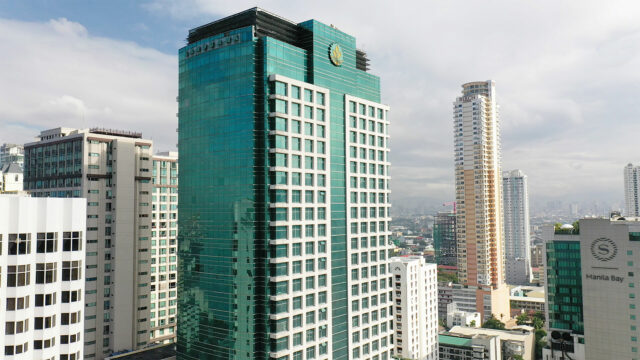Maharlika seen depriving gov’t of dividends from state banks, compressing fiscal space

THE Maharlika Investment Fund (MIF) may have a negative impact on the Philippines’ fiscal flexibility by denying the government access to the dividends of major state banks, a former central bank official said.
GlobalSource Partners Country Analyst Diwa C. Guinigundo, a former deputy governor of the Bangko Sentral ng Pilipinas (BSP), said Executive Order (EO) 43, which President Ferdinand R. Marcos, Jr. issued last week, overrides the law on dividends, which requires government financial institutions (GFIs) to remit at least 50% of their profits to the government.
“This move could impose both fiscal sustainability and financial stability consequences,” he said in a note. “By waiving its potential income from GFIs’ dividends to fund the MIF, the Philippine government is also denying itself of additional revenue.”
“Unless this is compensated for by higher taxes or higher borrowing or both, fiscal space could be compressed further,” he added.
EO 43 reduced Land Bank of the Philippines’ (LANDBANK) dividend obligation to 0% of net earnings from 50% previously, in compensation for providing seed capital to the MIF. The Development Bank of the Philippines (DBP) is also requesting similar dividend relief.
The executive order was issued after both banks remitted their contributions to the Maharlika Investment Corp. (MIC), which manages the Philippines’ first sovereign wealth fund.
The MIF will have authorized capital stock of P500 billion. Under the law, LANDBANK and DBP are responsible for P50 billion and P25 billion, respectively, of the MIC’s initial funding.
The BSP also said the two GFIs are seeking regulatory relief from the central bank as a result of their contributions to the sovereign wealth fund.
According to Mr. Guinigundo, the lending operations of the two state-run banks could be constrained unless they are given more time to build up their capital.
“They could fail in their statutory mission to helping agriculture and industry, as well as in putting up critical infrastructure in the Philippines,” Mr. Guinigundo said.
Under BSP regulations, all investments of banks are fully charged against a bank’s capital. This means the investment of DBP and LANDBANK in the MIF will be deducted from the banks’ capital in computing for their capital adequacy ratios.
This ratio compares the available capital that a bank has on hand to its risk-weighted assets. The more risk a bank is taking on, the more capital it will be required to keep on hand to protect depositors.
“By extending assistance to these two GFIs, the BSP will be effectively belying the claims of both institutions that their balance sheets are essentially robust. But if no support is given, the GFIs might eventually get into trouble,” Mr. Guinigundo said.
“They could end up violating the BSP’s regulatory capital requirements, and penalized with controls on lending and declaration of dividends. Financial stability becomes a challenge when depositors eventually become jittery and market confidence is eroded,” he said.
The Department of Finance (DoF) has said both banks “maintain their solid financial positions” despite their contributions to the fund. It also said that the banks’ contributions are taken from their investible funds and not from the loanable funds to farmers and other sectors.
Foundation for Economic Freedom President Calixto V. Chikiamco said the government’s fiscal space is already at risk due to the likely economic slowdown this year.
Gross domestic product (GDP) growth may average 4.5-5% this year, below the government’s 6-7% target.
“The government’s fiscal plan was anchored on 6% to 6.5% growth for the next five years,” Mr. Chikiamco said.
The economy grew 4.3% in the second quarter, its weakest showing in more than two years. First half GDP stood at 5.3%. Third-quarter GDP data will be released on Nov. 9.
“For sure, the weakening of the balance sheets of DBP and LANDBANK will constrain their ability to lend. This will not only contribute to the economic slowdown, but also to the non-generation of dividends,” Mr. Chikiamco said.
Last week, Mr. Marcos suspended the MIF law’s implementing rules and regulations (IRR) in order to amend its organizational structure.
Mr. Marcos also clarified the suspension would not impact on the MIF’s target to begin operations by the end of the year.
The economic team has said it is working with the Office of the President to review the MIF rules. The government has yet to specify which exact provisions from the IRR need revision.
“How tweaking the IRR can address the fundamental flaw of the law to achieve the best shape of the MIF escapes us. No matter how the IRR is cleaned up, the basic issues cannot be fixed,” Mr. Guinigundo said.
“But market talk is rife that this EO was issued to give the President the legal means to appoint his own choice of the MIF head. By so doing, the President might be drawn into politicizing the MIF and open it to questions of credibility. Lack of safeguards and governance issues could render the MIF unattractive to potential investors,” he added.
The MIC board will consist of the president and chief executive officer (CEO) of the MIC, the president and CEO of LANDBANK and DBP, as well as two regular directors and three independent directors from the private sector.
The Finance secretary will serve as the board chairperson in ex-officio capacity. — Keisha B. Ta-asan



